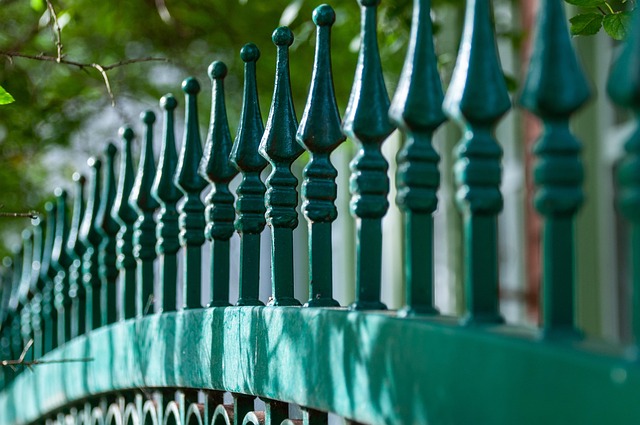New Bedford, MA residents increasingly seek eco-friendly fencing options that harmonize with their green spaces and contribute to a sustainable future. This article explores diverse green fencing choices available locally, highlighting benefits ranging from reduced environmental impact to enhanced aesthetic appeal. We guide readers through sustainable materials, discuss the positive urban space transformations of natural barriers, and compare traditional fencing’s environmental footprint with eco-friendly alternatives.
- Exploring Green Fencing Options in New Bedford
- Benefits of Eco-Friendly Fencing for Your Home
- Sustainable Materials: A Guide for Local Residents
- Enhancing Urban Spaces with Natural Barriers
- The Environmental Impact of Traditional vs. Eco-Fencing
Exploring Green Fencing Options in New Bedford
New Bedford, like many cities, is embracing eco-conscious solutions, and this trend extends to fencing materials. The city’s residents and local authorities are increasingly opting for green fencing options that not only enhance outdoor spaces but also contribute to a more sustainable environment. One of the primary benefits of these materials is their minimal impact on the natural ecosystem; they often utilize renewable resources and reduce waste, making them an attractive choice for environmentally conscious individuals.
With a range of eco-friendly options available, New Bedford residents can choose from recycled plastic, bamboo, or wooden fences. Each material offers unique advantages; for instance, recycled plastic fencing is durable and low-maintenance, while bamboo fences provide excellent strength and fast growth rates. These green alternatives not only reduce carbon footprints but also offer aesthetic appeal, ensuring that New Bedford’s neighborhoods remain vibrant and environmentally friendly.
Benefits of Eco-Friendly Fencing for Your Home
Eco-friendly fencing materials offer numerous benefits for homeowners in New Bedford, MA, looking to enhance their outdoor spaces while also contributing to a greener environment. One of the most significant advantages is their reduced ecological impact. These materials are typically made from sustainable resources such as recycled plastic, wood from certified forests, or natural fibers, minimizing the carbon footprint associated with traditional fencing options.
Moreover, eco-friendly fences provide aesthetic appeal without compromising durability. They can be designed to mimic the look of traditional wooden or stone fences while offering long-lasting performance against rot, pests, and harsh weather conditions. Such fences also contribute to energy efficiency by providing better insulation, reducing the need for frequent repairs or replacements, and potentially lowering cooling costs. Additionally, many of these materials are easily recyclable, further promoting a circular economy and sustainable living practices.
Sustainable Materials: A Guide for Local Residents
New Bedford residents increasingly seek sustainable solutions for their fencing needs, and there’s good reason. Eco-friendly materials offer not only environmental benefits but also enhance the aesthetic appeal and long-term durability of your outdoor spaces. When navigating the market for fencing, it’s important to understand the options that align with these values.
Fortunately, several remarkably durable and visually appealing choices exist. Bamboo, a rapidly renewable resource, provides a robust alternative to traditional wood fencing. Recycled plastic and metal offer low-maintenance options that won’t rot or attract pests. Each material comes with its own unique benefits and considerations, from aesthetic appeal and cost-effectiveness to installation ease and local availability. Exploring these sustainable options allows residents to contribute positively to New Bedford’s green future while enhancing their homes’ beauty and value.
Enhancing Urban Spaces with Natural Barriers
Urban spaces often lack natural elements, but introducing eco-friendly fencing materials can change this. Natural barriers like bamboo, wood, and recycled plastic offer an aesthetic appeal that complements urban landscapes while providing privacy and security. These materials blend seamlessly with the surroundings, creating a harmonious environment in New Bedford, MA.
Moreover, they contribute to biodiversity by offering habitats for local wildlife, bringing nature closer to city dwellers. The organic beauty of these fences enhances the overall ambiance, making outdoor spaces more inviting and enjoyable for residents.
The Environmental Impact of Traditional vs. Eco-Fencing
In New Bedford, MA, as across the globe, traditional fencing materials like wood and metal have long been the go-to options. However, these conventional choices come with significant environmental drawbacks. Wood fences, for instance, can contribute to deforestation and require frequent treatment with chemicals to prevent rot and pest damage. Metal fences, while durable, are often manufactured using energy-intensive processes and can end up in landfills as waste.
In contrast, eco-friendly fencing materials offer a sustainable alternative. Made from renewable resources like recycled plastic, bamboo, or organic fibers, these options reduce pressure on natural resources and minimize chemical usage. They also help combat climate change by sequestering carbon and reducing the energy required for production. Moreover, many eco-fences are designed to last longer than traditional fences, making them a cost-effective and environmentally responsible choice for New Bedford residents.
